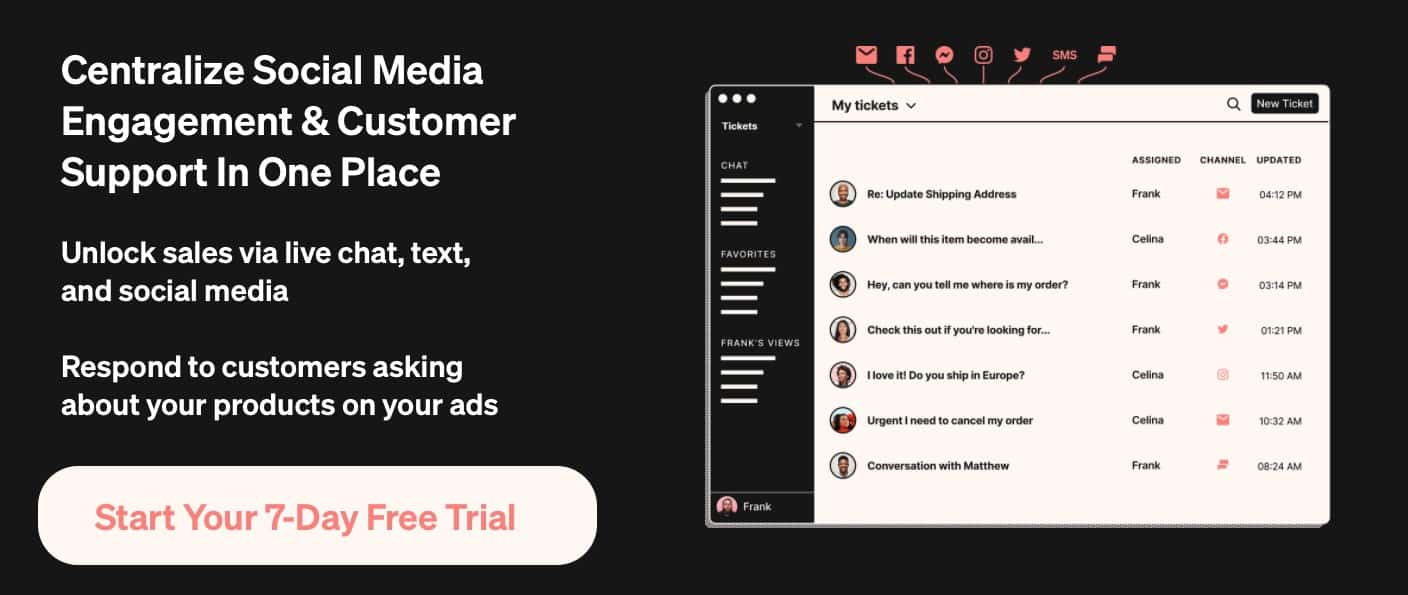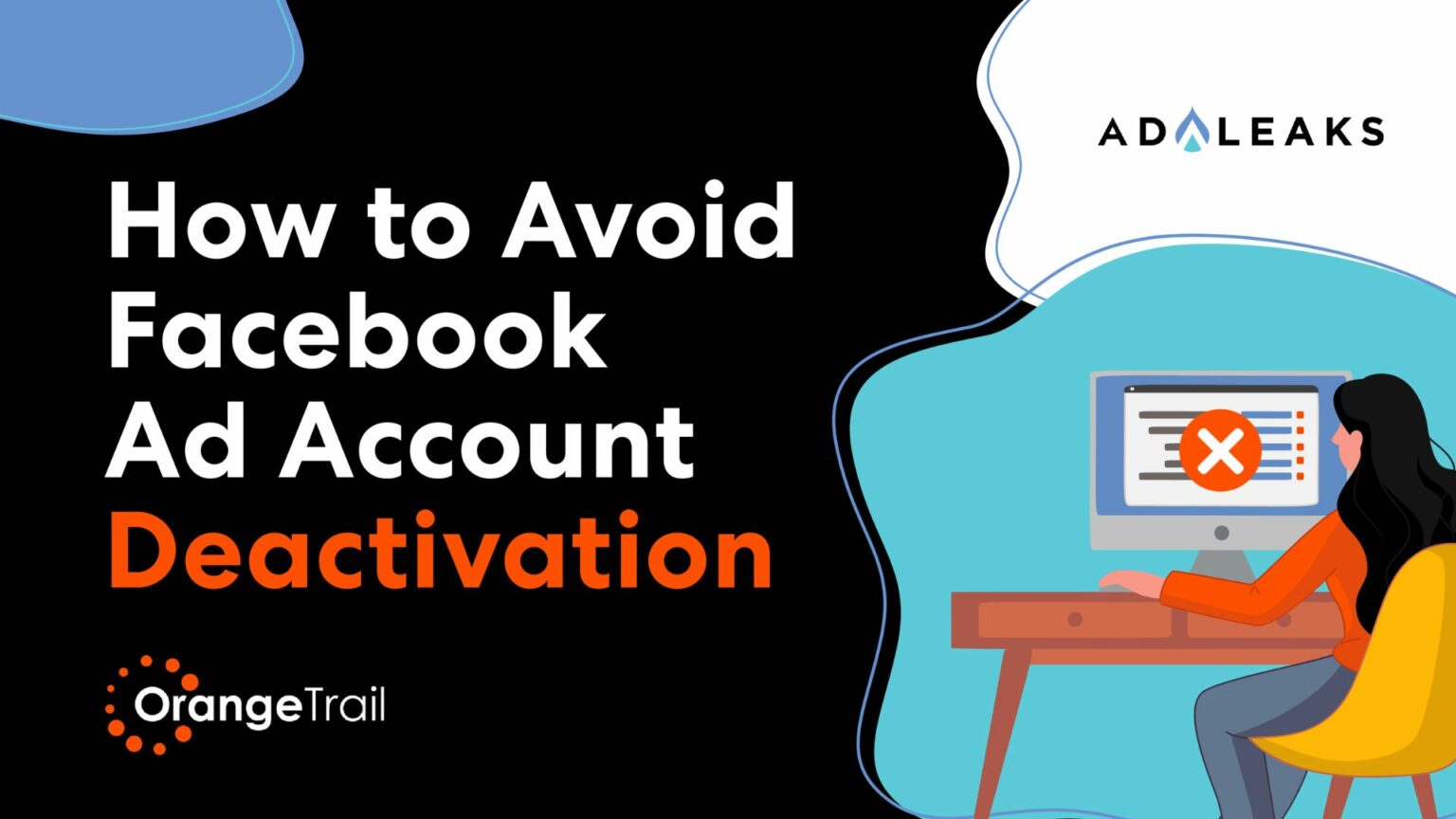
How to Master Social Media Marketing for eCommerce


In the last year, eCommerce sales topped $3.45 billion globally. That's a whopping 21% increase from 2018.
And with so many people staying home due to the COVID-19 pandemic, eCommerce sales are predicted to skyrocket in 2020 and beyond.
Many online sales are affected by social media, and many consumers turn to these platforms to help with buying decisions. In fact, 75% of shoppers have bought an item because they saw it recommended on social media.
If you're not harnessing social media's power, you're limiting your online business's potential.
With that in mind, this post will break down:
- How your eCommerce store can benefit from social media
- Tracking your KPIs and measuring results correctly
- Establishing the foundation of a winning social media strategy
Social Media Marketing's Relationship with eCommerce
Paid ads and search engine optimization are crucial to online selling success. Driving traffic to your store via social media, however, shouldn’t be ignored.
The average e-store store receives as much as 20% of its traffic from social media. That’s a significant number! But this alone doesn’t tell you the whole story.
Here are three other reasons to master social media marketing for your eCommerce business:
1. Two-Way Communication
When you advertise on TV, radio, in print, or even on billboards, you can't track and analyze the effectiveness of your marketing efforts.
With social media, however, you can communicate with shoppers all day, every day, in real-time. You can also get immediate audience input on how to improve your services.
Unsurprisingly, effective communication can increase customer satisfaction levels and lead to a 30-50% improvement in metrics like upselling, repeat purchases, and product recommendations.
2. Launch Highly Personalized Ads
With highly sophisticated audience targetting and re-targeting tools, you can tailor the content in your ads to cater to your audience's specific needs.
This is certainly worth doing — on average, personalized ads can increase sales by as much as 20%!
3. Encourage Word-of-Mouth Referrals
Social media makes it easy for satisfied shoppers to share their experience with your brand. This is known as word-of-mouth marketing (WOM) and works wonders for boosting your online reputation.
There are two categories of WOM marketing:
- Organic
- Amplified
Organic word-of-mouth happens naturally and spontaneously. In contrast, amplified WOM is when merchants encourage customers to leave positive reviews.
While amplified WOM can work, only about one in three online stores use it. And, needless to say, social media platforms provide a fabulous way of kickstarting an amplified WOM campaign.
Tracking and Analyzing Results
The biggest obstacle to optimizing an excellent social media strategy is that you need to treat it professionally. This means tracking campaigns, evaluating the results, and making changes along the way.
So, which metrics do you need to keep an eye on? Here are the three most important ones:
- Engagement: Engagement takes into account the number of reactions, shares, and clicks your post attracts. With a firm grasp of your engagement rate, you'll be better positioned to improve your other KPIs.
- Reach: Your 'reach' reveals how far your brand's message travels, so it's vital to know so you can tweak your strategy to extend your reach.
- Conversion: Your conversion rate enables you to measure the ratio of people who actually purchase something from your store due to engaging with your social media ad.
Master eCommerce Social Media Marketing
There are a few steps to developing a successful social media marketing strategy. Most notably, you'll need to:
- Set objectives for your marketing campaigns
- Identify your audience
- Choose the right social media platform
- Plan a schedule full of engaging content
If you're unsure where to start with your plan, ask yourself the following questions. Use the answers to inform your social media marketing strategies:
- How does your target audience spend their free time?
- Can you reach your ideal customers through social platforms?
- What networks do they use?
- How many referrals are you currently getting from social media?
- Do your competitors successfully use social media? If so, how?
Identify Your Target Demographic
Once you know who your target demographic is, you'll be better positioned to market to them. Start identifying them with these steps:
- Analyze your current website and social media visitors by finding out their age, gender, and location. You can source this information using Google Analytics and Facebook Audience Insights.
- Familiarize yourself with their buying habits.
- Create an ‘ideal customer’ profile and use this avatar to fuel your social media marketing.
Picking Social Media Platforms for Your Brand
Social media platforms aren’t one-size-fits-all, especially for marketing. You'll need to pick the platform(s) best for your target audience. Once you've done some research and know which social media networks to use, you’ll have a better direction for content creation and optimization.
Just because a platform is trendy doesn’t immediately make it the perfect fit for your business. Tik Tok, for example, is currently a very popular social media platform. However, while it's the fastest-growing network at the moment, it's occupied primarily by teens. So, unless this is your target demographic, the platform holds little value to your store.
This is why picking the right platforms based on your ideal customer is imperative for reaping the highest possible ROI. Pinterest, for example, is used by 42% of women, and pins that include prices have 36% more likes.
Therefore, if most of your customers are women, Pinterest might be the right entry point for your social media marketing efforts.
Create a Content Plan
Once you've identified:
- Your target audience
- The social media platform you'll use
- Your social media campaign goals
You can start to develop a concrete content plan.
Create a list of topics that would interest your target audience. Always keep the customer in mind - what do they talk about on social media? Which posts do they comment on? Use your answers to fuel your content.
And when it comes to how often you should post, most researchers recommend a minimum of three and a maximum of 14 times each week.
Use Comments to Your Advantage
As time goes on and you improve your social media ads' quality and targeting, you'll start raking in the comments.
Any one of those comments could be your next sale. But negative feedback may also rear its ugly head. This is to be expected, but it could hurt your conversion rate.
This is why managing your social media comments is imperative. Are you engaging with users who ask questions? Or to hide negative comments?
It’s a time-consuming task, but it could protect your brand’s reputation.
The right tool, like Gorgias, makes it simple. These tools use AI to detect questions and comments that exude either positive or negative sentiments.
Gorgias organizes the most relevant comments into dedicated views for more time and energy on being productive. You can further maximize your ad spend by giving coupon codes to commenters that spread the love.
Gorgias also auto-hides negative or trolling comments so you and your audience can concentrate on the positive.
Start Boosting Your eCommerce Sales with Social Media Marketing
With these tips, you'll have everything you need to lay a solid foundation for your social media campaign.
Let’s recap:
- The right social media platform will help your store reach its full potential.
- You should measure and evaluate the success of each social media campaign to improve your strategy.
- Take the time to plan and assess every step of your strategy.
Overwhelmed by your social media platforms?
If you’re handling multiple accounts like a pro, things can get complicated. Gorgias centralizes all of your social media messages in one place so you can engage with and respond to feedback efficiently.







